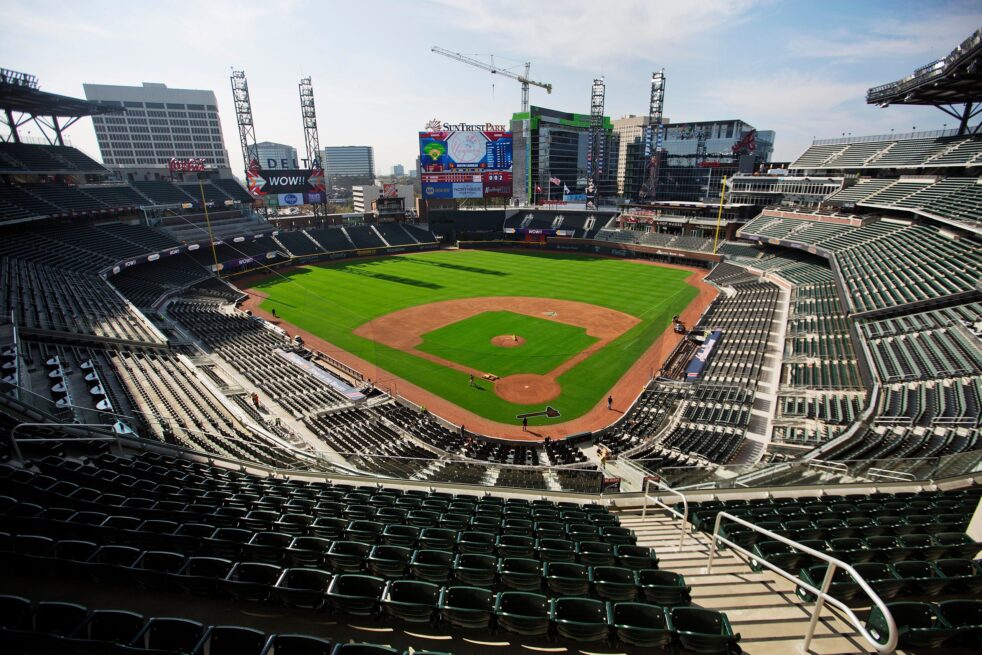What was supposed to be a piece about how Major League Baseball’s All-Star Game should be moved from Atlanta, but very likely won’t, is very surprisingly now one about the fact that it was. The oldest and arguably least socially progressive of the big five American men’s professional sports leagues made a bold and necessary move to rebuke the Georgia legislature for passing SB 202, a bill that severely limits voting accessibility, particularly modes of voting that Democratic-leaning areas in the state use.
As to why I didn’t think the game would be moved: it never seemed like something the MLB or Commissioner Rob Manfred had the guts to do. The last time the league had a major controversy on their hands, the Houston Astros and Boston Red Sox cheating scandals, they dealt with it timidly and with a lack of punishment to fit the crime. While that was an issue within baseball and not an external political problem, it still was a glaring example of how MLB tackles a situation with moral issues at the forefront.
However, to Rob Manfred and MLB’s credit, they intently listened to the players’ and Major League Baseball Players Association president Tony Clark’s concerns and very quickly came to the conclusion that having the game in Atlanta was not a reasonable option any longer.
The law passed unequivocally was made in bad faith, and in response to a problem of voting integrity that doesn’t exist and showed no signs of remotely being a cause for concern.
It’s the largest current example of the Big Lie told by Republicans that has actually wound its way into a law code. Imagine losing a baseball game three days after it started, but only because there was rain interrupting the game. Image this situation to the 2020 election and Georgia runoffs, and Republicans would say the rain was intentional.
As formal and intellectually considerate the statement released by MLB was, the Braves followed up with a statement that was tone deaf at best. They did mention that Atlanta businesses would lose possible income, which is true, but the influx of business was never guaranteed, and in fact Cobb County has passed a resolution committing tax dollars to cover some of the cost of hosting the game. It’s hard to throw a pity party for a private team that got handed a gift they never needed.
The Braves also put in a line mentioning that Atlanta is a place of unity. Yes, this is also true and one of the key sources of life making Atlanta what it is right now. But, the whole statement was very much a message distancing themselves from the decision of MLB, effectively doing the opposite of showing unity instead of acknowledging that MLB was entirely within their rights and opinion to make a decision they saw would advance social progress.
Just while we’re on the topic, the statement Governor Kemp also released was inadequate. He signed this law into existence so it shouldn’t be a surprise.
All of this to say, I am so greatly surprised and delighted with Rob Manfred and his approach to seeing where his league was and what they thought would be best. Baseball never got a chance to make a public display during the summer’s Black Lives Matter protests because they weren’t playing games. That said, the NFL also wasn’t playing games then, and made it a point during their season to have anti-racism messaging throughout the league.
MLB importantly noted that all of the community involvement and investments they were planning on making in Atlanta around the game will still take place.
If they hadn’t done this, I would’ve probably said the state would be better off with the game not moved.
Instead, we have a major public rebuke of a backwards law, while at the same time parts of the city that need help are going to get that.
The All-Star Game now is reportedly going to be played in Coors Field, home of the Colorado Rockies. It brings notable subtext to the game, as Colorado’s voting laws are starkly more open than the current Georgia laws.
